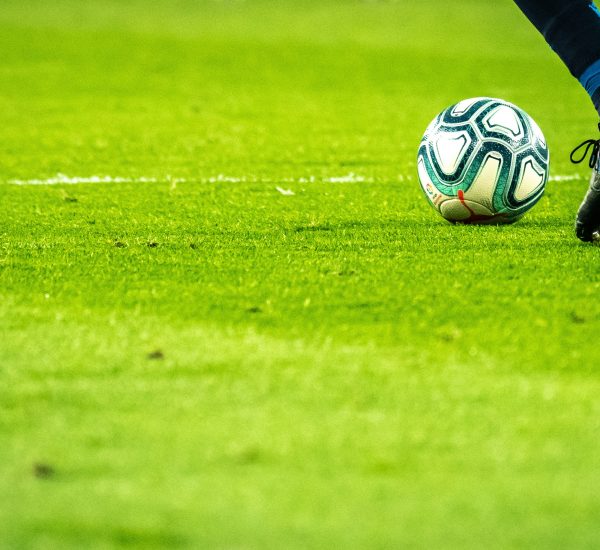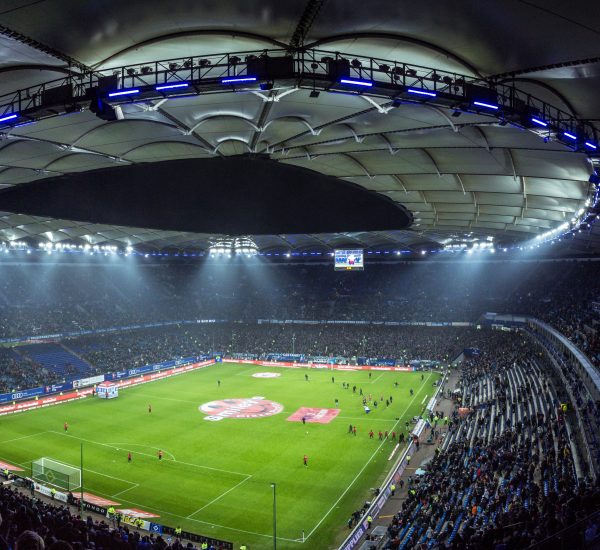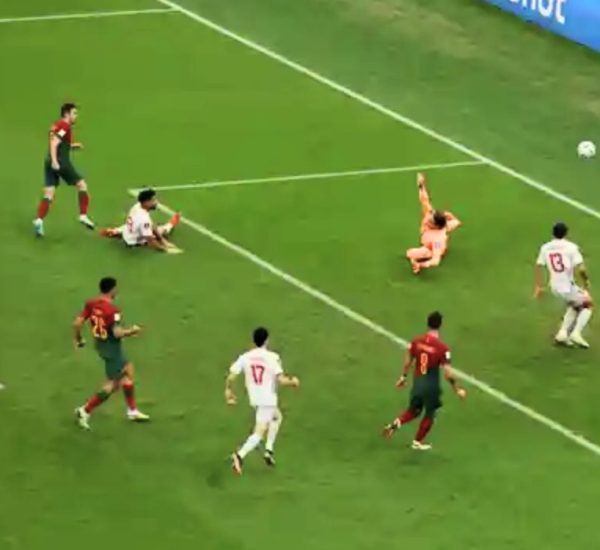Tottenham Hotspur, also known as ‘Spurs’, is a London-based professional soccer club that plays in the top flight of the English soccer league.
Founded in 1882, the north London club has been quite successful by winning 2 League titles, 8 FA cups and 4 League cups. Moreover, Tottenham is the first British team to win a major European competition. They have won the UEFA Cup (Europa League) on three occasions.
Let us have a look at the history and the formation of Spurs.
| Full Name | Tottenham Hotspur FC |
|---|---|
| Founded | September 5, 1882 |
| Nickname | The Lilywhites |
| Stadium | Tottenham Hotspur Stadium |
| Capacity | 62,850 |
| Owner | ENIC International Ltd. |
| Manager | Nuno Espírito Santo |
| League | Premier League |
Foundation Of Tottenham Hotspur F.C.
The club was formed as ‘Hotspur Football Club’ in 1882 by a group of schoolboys from a local cricket club. They started the soccer club as an alternative sport to play in the winter months. The team got renamed Tottenham Football Club after two years. They began playing their games on the Tottenham Marshes.
First FA Cup Trophy
After spending much of their early years in amateur soccer, the club became professional in 1985. They joined the Southern League, which they won in 1900. It was also the year that Spurs acquired and moved into their new ground, which was almost called ‘Gilpin Park’, but became known as White Hart Lane.
In the following year (1901), Tottenham won their first-ever FA Cup by defeating Sheffield United. Despite being a non-league club, Spurs managed an unprecedented feat that got into the history books. It remains the only time a non-league club has won the FA Cup in the history of professional English soccer.
Promotion To First Division Soccer
After resigning from the Southern League, Spurs were finally accepted in the Football League in 1908, joining the Second Division. The club won promotion immediately, after finishing as runners-up in the second-tier league.
However, the club struggled in their first appearance in the top-tier league and avoided relegation on the last game of the season thanks to a victory against Chelsea FC.
Relegation And Instability
Tottenham had just been relegated to the Second Division when the English Football League was suspended due to the First World War. The restart of the competition gave Spurs hope of a potential return to the First Division. It was mainly due to the expansion in the number of teams in the league.
However, this was not the case as local rival Arsenal was instead reinstated in the top flight. This decision led to a fierce rivalry between both London-based clubs, known as the North London Derby.
After the War, club manager Peter McWilliam guided the team straight back into the First Division by winning Division 2 in the 1920-21 campaign. He also managed to win the club’s second FA Cup in the following season by defeating Wolverhampton Wanderers by 1-0. Spurs also came close to their first-ever First Division title but fell short to Liverpool FC in 1922.
After several mid-table finishes in Division 1, Spurs were ultimately relegated to the second tier of the English Football League in 1927-28. The club spent the whole of the ’30s and ’40s in Division 2. They got promoted to the top flight in 1933 before getting relegated again two seasons later.
Arthur Rowe And First League Title
Spurs appointed former player Arthur Rowe as a manager in 1949 following a series of bad performances. Rowe was a great tactician, and he introduced the ‘push and run’ style of play within the team. This tactic proved successful as the club transformed into a formidable team. It became difficult to compete against Tottenham.
Eventually, Rowe won the Second Division in his first season in charge of the club. He did even better in his second season, as Spurs went all the way to win the First Division title. It was the club’s first-ever league title and Rowe’s only success as he retired in 1955 due to health issues.
The Glory Years Under Bill Nicholson
The 1960s, extending to the early ’70s, were undoubtedly the best years in the history of Tottenham Hotspur Football Club. The trophy drought ended in 1961 when Spurs won the First Division comfortably under the stewardship of Bill Nicholson.
Weeks later, the club defeated Leicester City by 2-0 to win the FA Cup, becoming the first team to complete the double in English soccer. It was thanks to legends such as Danny Blanchflower, but particularly Jimmy Greaves, who remains Tottenham’s highest ever goal-scorer, as well as the highest goal scorer in English top-flight history.
The trophy haul continued as Spurs retained the FA cup in 1962 with a win over Burnley FC. Consequently, the FA Cup victory sealed qualification for next year’s European Cup Winners Cup competition.
Having come close to reaching the final the previous year, Tottenham went all the way to win the competition in 1963. They defeated Atletico Madrid by a thumping 5-1 to become the first English club to win a major European trophy.
Jimmy Greaves, The Goal Scoring Machine
Jimmy Greaves scored 44 goals in his 49 appearances in the 1962-63 season, including a brace in the European Cup Winners Cup final. In the same season, Greaves also set the record for the most goals in the First Division with 37. Yet Spurs could not retain the league title after finishing second.
At this point, with the most prolific striker in the world in their ranks, Spurs could claim to be one of the best teams in Europe.
More Success Under Nicholson
Spurs won the FA Cup once again in 1967, beating Chelsea FC by 2-1 in the first-ever cup final involving two teams from London. Despite an ageing squad and several departures, Nicholson managed to rebuild the team as they entered the 1970’s as a strong force in the domestic league.
Though the club could not significantly impact the domestic league in the early 1970s, Nicholson managed to bring more silverware. Tottenham won the League Cup in 1971 and 1973; however, the most significant trophy was the UEFA Cup victory in 1972.
In the UEFA Cup semi-finals, Tottenham overcame AC Milan by an aggregate score of 3-2 to advance to the finals. They faced First Division rivals Wolverhampton Wanderers in the final stages of the competition.
Tottenham secured a 2-1 victory at The Molineux Stadium in the first leg. The second leg fixture ended in a 1-1 draw. Spurs won the final over two legs by an aggregate score of 3-2. Martin Chivers, Steve Perryman and Pat Jennings were the key players who made significant contributions during this period.
In 1974, after 16 years at the club, Nicholson resigned as first-team manager due to poor performances. Having won 8 major trophies with the club, he is regarded as the most successful Spurs manager to date.
Keith Burkinshaw And Terry Venables Era
Keith Burkinshaw took over the club as a manager; however, he could prevent the club from relegation in the 1976-77 season. Yet, Burkinshaw helped the club towards immediate promotion back to the First Division the following season.
Under his leadership, Tottenham secured the signature of several key players. The players were Glenn Hoddle and the two famous Argentinians, Osvaldo Ardiles and Ricardo Villa. Once again, the newly built Spurs team went on to win three trophies with Burkinshaw at the helm.
They achieved two consecutive FA Cups in 1981 and 1982 respectively. Both finals required a replay to determine the winner, with Ricardo Villa the hero in 1981 and Glen Hoddle scoring the winner in 1982.
Similarly, success followed in Europe as Tottenham reached the 1984 UEFA Cup final. They faced Anderlecht in a two-legged final, which ended in a 1-1 draw on both occasions. Spurs eventually won the penalty shootout by 4-3.
Failing To Add More League Titles
Tottenham was back to being a solid team in the English First Division, but not entirely on the level to rechallenge the title. Changes to the commercial strategy of the club led to stadium redevelopments. In the 1990s, famous businessman Alan Sugar along with Terry Venables, took control of the club.
The injection of cash allowed Spurs to sign England legends Paul Gascoigne and Gary Lineker. Under the management of Terry Venables, the London club became an exciting team full of talent but failed to mount a serious title challenge.
An 8th FA Cup Triumph for Spurs
The 1991 FA Cup final took place at the Wembley Stadium. Over 80,000 soccer fans responded to the event. The two teams that made it to the final were Nottingham Forest and Tottenham Hotspur.
Tottenham qualified for the final by defeating Arsenal in the previous round. They defeated The Gunners in the semi-final by 3-1.
Under Terry Venables management, Spurs ended the match at 1-1 after regular time (90 minutes). Nottingham Forest took the lead in the 16th minutes’ thanks to a Stuart Pearce goal. Later, Paul Andrew Stewart equalised for the London based club at the 55th minute.
In the extra time, an own goal from Desmond Sinclair Walker secured an 8th FA Cup trophy for Tottenham.
Spurs In The Premier League
Spurs participated in the reform of English soccer and the foundation of the Premier League. Despite having some of the most exciting names playing for them, like David Ginola, Teddy Sheringham, Jurgen Klinsmann, and prolific goal scorer Les Ferdinand, they remained a mid-table side throughout the 1990s and early 2000s.
In 2001, Alan Sugar sold his ownership share in the club to ENIC Sports Plc, which Joe Lewis and Daniel Levy run. Since then, Daniel Levy was named the new Chairman and has been responsible for the club’s running.
Despite not achieving the same success as before, Spurs won the League Cup twice, which they claimed in 1999 under George Graham and 2008 under Juande Ramos. It remains the club’s most recent success to date.
Notable star players who graced the team during this period were Sol Campbell, Gus Poyet, Ledley King, Robbie Keane, Dimitar Berbatov, Gareth Bale, and Luka Modric.
Harry Redknapp Era
In 2008, former Portsmouth manager Harry Redknapp was appointed as the replacement of Juande Ramos. It was the start of a new era for the club as Spurs began their route to becoming a consistent team in the Premier League and European competitions.
Harry Redknapp brought in several key players during his tenure, namely Jermain Defoe, Peter Crouch, and Rafael Van Der Vaart. However, Gareth Bale, Luka Modric, and Danny Rose helped the club to a fourth-place finish in the league in 2009-10, securing Champions League qualification for the first time in the club’s history.
Despite not winning any trophy with Spurs, Redknapp left many memories with the club and fans. One of his notable moments in the Champions League run in 2011, where they reached the competition’s quarter-finals. In a two-legged fixture against Inter Milan, Gareth Bale showcased his immense talent.
Due to failure to agree on a new contract, Harry Redknapp was replaced by André Villas-Boas in June 2012.
Several Managerial Changes
Despite not making the desired impact at the club, the former Chelsea and Porto coach signed several instrumental players like Hugo Lloris, Jan Vertonghen, Christian Eriksen and Erik Lamela.
After several poor results, Villas-Boas was dismissed in December 2013 and was replaced by Tim Sherwood for the rest of the 2013-14 season. In May 2014, Spurs appointed Mauricio Pochettino as the new head coach.
Mauricio Pochettino Is Appointed As Spurs Coach
The Argentinean and former Southampton FC manager is known for his focus on promoting young and local players. His approach has seen young players like Harry Kane, Eric Dier and Dele Alli flourished to stardom.
During his five years spell with Spurs, Pochettino made the club a regular
Champions League side and even mounted a couple of title challenges. In the 2015-16 Premier League campaign, they finished the season in third place. Leicester City was proclaimed as champions that season.
In the following season that followed, they finished in second place behind Chelsea. The second-place finish in 2017 with 86 points was the highest point tally of Spurs in the Premier League era and the first time in 52 years since the club went on a season-long unbeaten run at home.
Tottenham Hotspur Stadium
In 2015, the club initiated plans to build a new 62,850 capacity stadium named Tottenham Hotspur Stadium. The new ground got constructed on land adjacent to the existing White Hart Lane Stadium.
In the 2017-18 season, to complete the construction of the new stadium, White Hart Lane had to be demolished. The London club had to play their entire home games at Wembley Stadium.
The new stadium opening ceremony took place on April 3, 2019. Tottenham recorded a win on their debut match by overcoming Crystal Palace by a 2-0.
2019 UEFA Champions League Finalist
Tottenham also played in the Champions League regularly under the leadership of Pochettino. In 2019, the club went on an incredible journey that saw them reach the final of Europe’s most coveted competition.
A famous semi-final comeback against Ajax saw the English club book their tickets for the UEFA Champions League final. Lucas Moura scored a hattrick to help Spurs overcome a three-goal deficit and win the
game on away goal rule.
The Champions League final was played at the Metropolitano Stadium in Madrid on June 1, 2019. The other finalist was Liverpool FC from England. Jurgen Klopp’s men came out winners as the match ended by 2-0.
The Appointment Of Jose Mourinho As Spurs Coach
Despite the club’s revival under Mauricio Pochettino, Spurs felt short of winning silverware on several occasions. After a poor start to the 2019-20 Premier League campaign, the Argentinian coach was sacked on November 19, 2019. Jose Mourinho, The Special One, replaced him.
Mourinho was appointed based on his successful performances across Europe as a manager. He was seen as the man to deliver a trophy to the club finally.
With the terrifying attacking partnership of local hero and club captain Harry Kane and Son Heung-min, Mourinho had a team who could compete for silverware.
Tottenham Hotspur Sack Mourinho
During Mourinho first season in charge, Spurs ended the campaign in 6th place. The season was hit by the Covid-19 pandemic, whereby soccer was immensely affected.
Tottenham was able to secure their tickets for the 2020-21 Carabao Cup final under Moutinho. In the Premier League, Spurs failed to produce the desired results under Mourinho management.
On April 19, 2021, club Chairman Daniel Levy parted company with Mourinho.
The 2020-21 Carabao Cup Finalist
Tottenham faced Manchester City in the final of the Carabao Cup on April 25, 2021. The fixture took place at Wembley Stadium, with 8,000 fans.
Interim head coach Ryan Mason side eventually lost to Manchester City by 1-0. Aymeric Laporte scored the match-winner goal for The Citizens at the 82nd minute.
Tottenham Hotspur Logo
The Tottenham Hotspur logo has undergone some changes over the years. At first, the logo consisted of a cockerel. Besides, the fighting cock and Spurs somehow meant the same thing. So the 1921 badge featured the cockerel in the shield.
William James Scott came up with the idea to use the cockerel on a soccer ball in the badge. As a result, the former Spurs player made a bronze sculpture of the cockerel standing on a ball. This change happened in the 1960s.
Tottenham Hotspur used a faux heraldic shield for nearly 50 years. It is comprised of local landmarks and associations. Later in 2006, Spurs revamped their badge. The logo was a redesign of the previous version, which consisted of a cockerel standing on a soccer ball.
The same design features in the Tottenham Hotspur badge today.
End Of Line
Tottenham Hotspur squad has it all to claim the English Premier League title and Europe top competitions. The club is regarded as one of the best sides across the world. With the support of their fans, the club will look to bounce back stronger than ever.
References:
- Date accessed: April 23, 2021. A Halftime Report. Peter McWilliam: The Tottenham Boss Who Created Legends: https://bit.ly/32Rj6iK
- Date accessed: April 23, 2021. Wikipedia. Jimmy Greaves: https://bit.ly/2QzCj5Z
- Date accessed: April 24, 2021. Tottenham Hotspur Website. Club Honours: https://bit.ly/3xqQ6fQ
- Date accessed: April 24, 2021. Wikipedia. Tottenham Hotspur F.C.: https://bit.ly/3vgekHE
- Date accessed: April 24, 2021. Wikipedia. History of Tottenham Hotspur F.C.: https://bit.ly/3nsHSPQ
- Date accessed: April 24, 2021. Tottenham Hotspur Website. Year By Year: https://bit.ly/32QGZXJ
- Date accessed: April 27, 2021. Wikipedia. Tottenham Hotspur Stadium: https://bit.ly/3tZqMv6
- Date accessed: April 27, 2021. EFL. Report: Manchester City make history in Carabao Cup Final at Wembley: https://bit.ly/2PqTUMZ



